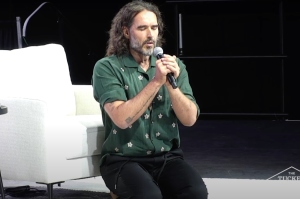Study: 1 in 5 Atheist Scientists Attend Church With Family
A recently published study found that nearly one in five scientists who consider themselves atheists nevertheless bring their children to a church service one or more times a year.
Printed in the December edition of the Journal for the Scientific Study of Religion, the survey had a sample of 275 university-level faculty members.
“Our research shows just how tightly linked religion and family are in U.S. society,” said Dr. Elaine Howard Ecklund of Rice University, lead investigator for the study, in a statement.
"[S]o much so that even some of society's least religious people find religion to be important in their private lives.”
The study stated that the main reasons were related to social and personal matters, including attending at the behest of a Christian spouse or catching up with friends.
Roy Speckhardt, executive director for the American Humanist Association, told The Christian Post that the study’s findings were not surprising to him.
“Certainly many atheists do attend church services and according to a Pew Forum survey, many a percentage of people who identify with nearly every faith are also atheists and agnostics,” said Speckhardt.
“Like many who do believe in a god, these folks likely attend church for the community experience, or the cultural connection to the religion.”
Regarding atheists who are doing this, Speckhardt believed that “there is nothing wrong with them exploring those questions and learning differing perspectives by attending church services.”
As the study listed a sense of community as a major reason, Speckhardt added that atheists will attend places of worship that are “very welcoming,” listing Unitarian Universalist churches and secular Jewish temples as examples.
Dr. Billy McCormack of the Christian Coalition saw the study as showing that atheist academics see church as a positive moral environment.
“Atheists understand that people who attend church are more likely to be persons of high moral character and would prefer their children experience this more positive environment,” said McCormack in an interview with CP.
“It is somewhat different than taking them to the circus.”
While Speckhardt believed the percentage of atheist academics who took their children to church was likely the same as the general atheist population, McCormack believed otherwise.
“Academics are dogmatic as a rule. Their usual arrogance, subtle or pronounced, makes them less likely than the general public atheists to allow their children to be exposed to truth with which they strongly disagree,” said McCormack.
McCormack also talked about the issue of evangelizing those who are there for secular reasons, like the 17 percent observed in the study.
“Since it is not possible to know if there are atheists present the preacher will speak of the attributes of God which will minister to believers and non-believers,” said McCormack.
“The quantity of his material is not as important as the quality of the spoken Word and how it is delivered.”



























